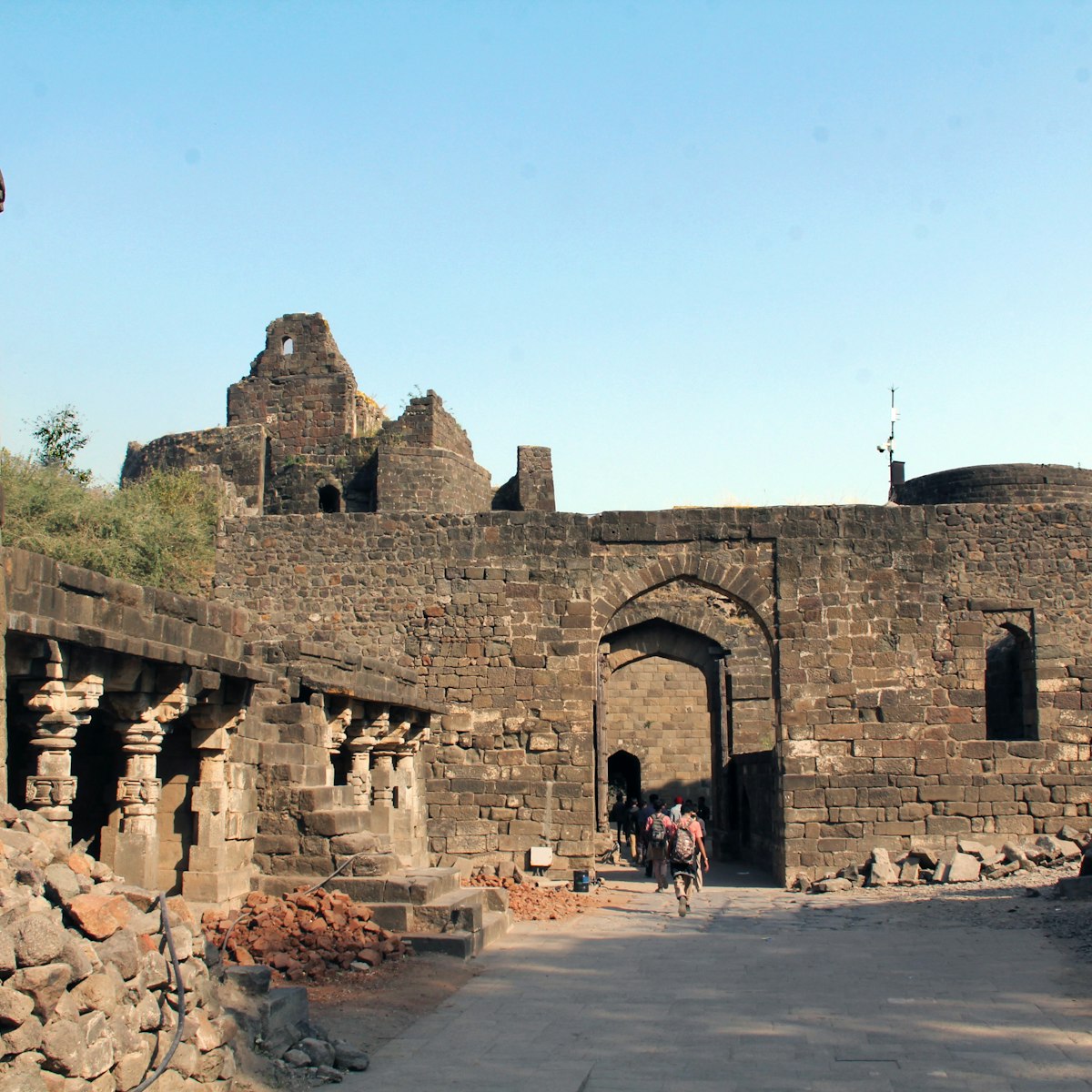Calm and contemplation infuse the 12 Buddhist caves, which stretch to the south of Kailasa. All are Buddhist viharas (monasteries) used for study and worship, but these multistoreyed structures also included cooking, living and sleeping areas. The one exception is Cave 10, which is a chaitya (assembly hall). While the earliest caves are simple, Caves 11 and 12 are more ambitious; both comprise three storeys and are on par with the more impressive Hindu temples.
Cave 1, the simplest vihara, may have been a granary. Cave 2 is notable for its ornate pillars and the imposing seated Buddha that faces the setting sun. Cave 3 and Cave 4 are unfinished and not well preserved.
Cave 5 is the largest vihara in this group at 18m wide and 36m long; the rows of stone benches hint that it may once have been an assembly hall.
Cave 6 is an ornate vihara with wonderful images of Tara, consort of the Bodhisattva Avalokitesvara, and of the Buddhist goddess of learning, Mahamayuri, looking remarkably similar to Saraswati, her Hindu equivalent. Cave 7 is an unadorned hall. Cave 8 is the first cave in which the sanctum is detached from the rear wall. Cave 9, located above Cave 8, is notable for its wonderfully carved fascia.
Cave 10 is the only chaitya in the Buddhist group and one of the finest in India. Its ceiling features ribs carved into the stonework; the grooves were once fitted with wooden panels. The balcony and upper gallery offer a closer view of the ceiling and a frieze depicting amorous couples. A decorative window gently illuminates an enormous figure of the teaching Buddha.
Cave 11, the Do Thal (Two Storey) Cave, is entered through its third basement level, not discovered until 1876. Like Cave 12, it possibly owes its size to competition with Hindu caves of the same period.
Cave 12, the huge Tin Thal (Three Storey) Cave, is entered through a courtyard. The locked shrine on the top floor contains a large Buddha figure flanked by his seven previous incarnations. The walls are carved with relief pictures.




